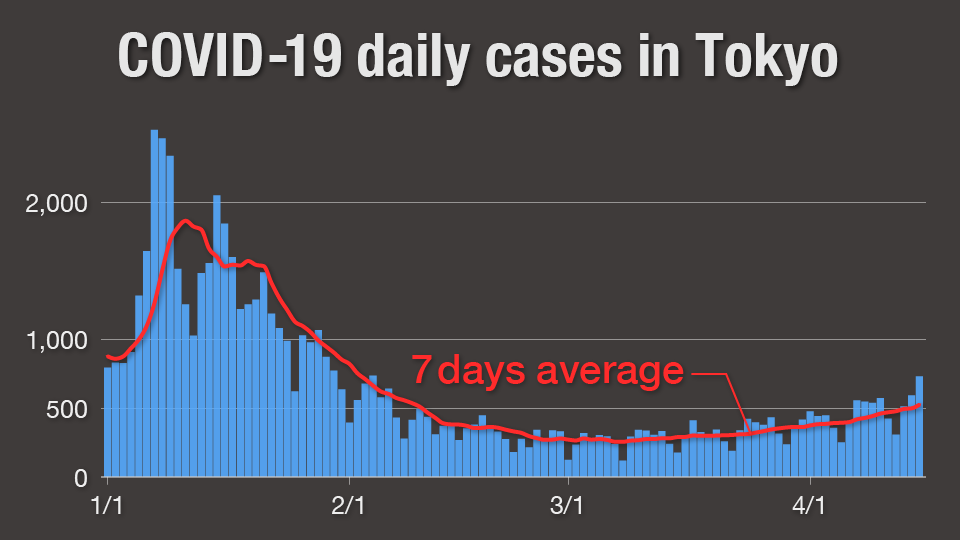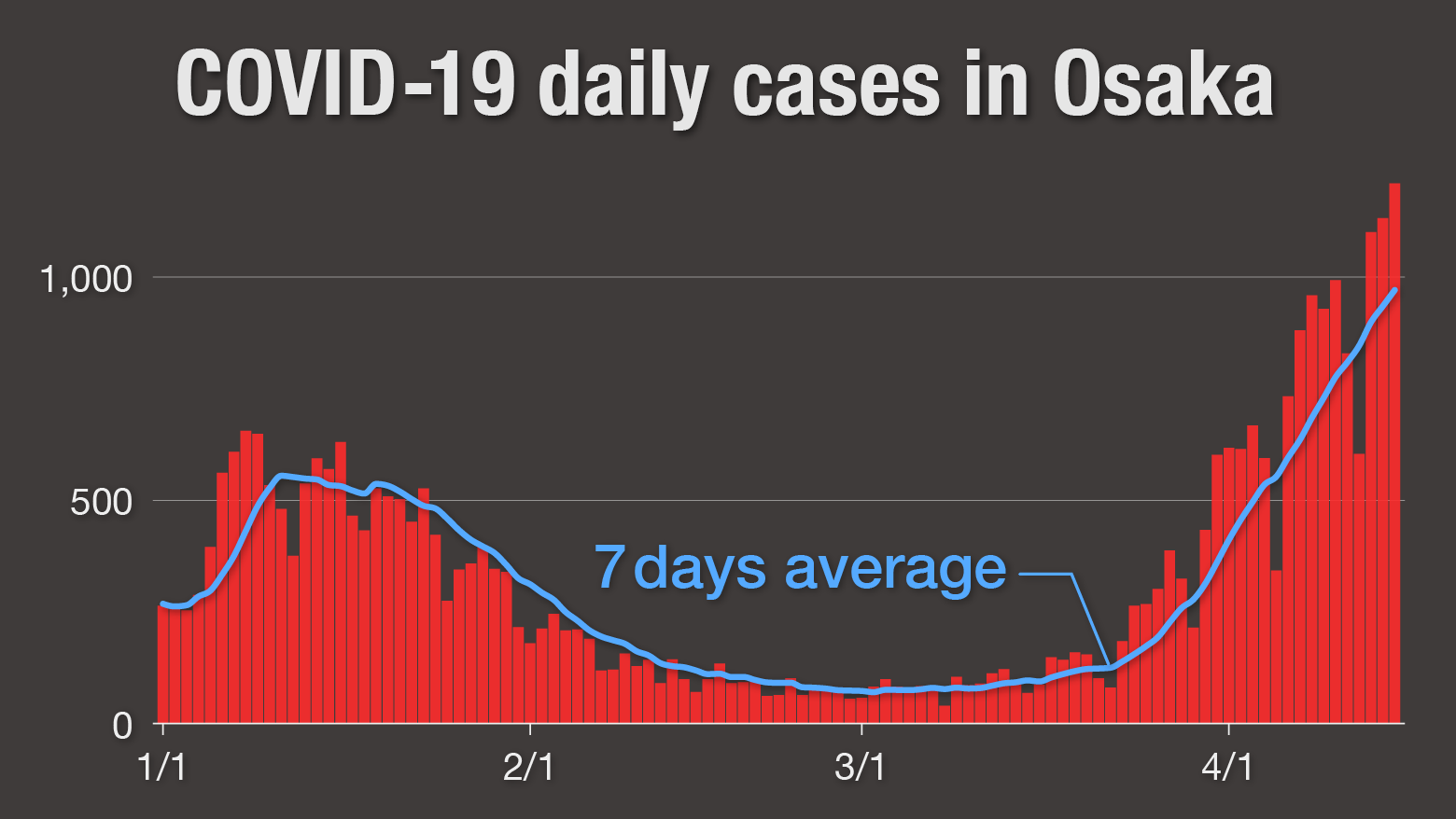Osaka is among six prefectures that recently tightened coronavirus prevention measures, yet infection numbers continue to rise.
Juso Hospital, one of the largest facilities in the prefecture, has a dedicated coronavirus ward with 70 beds for patients. As of Thursday, 58 were occupied. The facility is designed for patients with moderate symptoms, but is accommodating some with more serious symptoms who couldn't find beds elsewhere.
"The fact is that other hospitals can't take the patients," says hospital director Nishiguchi Yukio. "I'm worried that there will be people who don't get admitted to any hospital or hotel, and end up dying at home because they can't receive medical care in time."
Officials say the prefecture now has 261 people needing more than primary care, but only 241 beds.
Professor Nishiura Hiroshi, an infectious disease expert at Kyoto University, says simulations indicate that the number of very sick patients will top 500 in two weeks' time, if the current situation continues.
Osaka Governor Yoshimura Hirofumi says the most urgent need now is to get people to minimize their outings and contact with other people.
Variants surge
Scientists at the National Institute of Infectious Diseases estimate that more than 80% of cases in Osaka and other western prefectures are a coronavirus variant first found in Britain. The strain is viewed as more contagious than the original.
They say the variant has also been spreading fast in Tokyo and its three neighboring prefectures since mid-March. It accounted for only about 10 percent of cases in April, but is expected to reach 80 to 90 percent by early May.

Govt. to impose stricter steps in greater Tokyo
The central government decided to add Tokyo's neighboring Saitama, Chiba and Kanagawa prefectures, as well as Aichi, to its list for strengthened prevention measures, though it will stop short of declaring a state of emergency.
The designation is set to come into effect next week, just before the start of the spring holidays. It will allow governors to order restaurants and bars to close early, and impose punishments for those that don't comply.
"A state of emergency is obviously the next option for the government," Omi Shigeru, the head of the government's advisory panel, told a news conference earlier this week.

